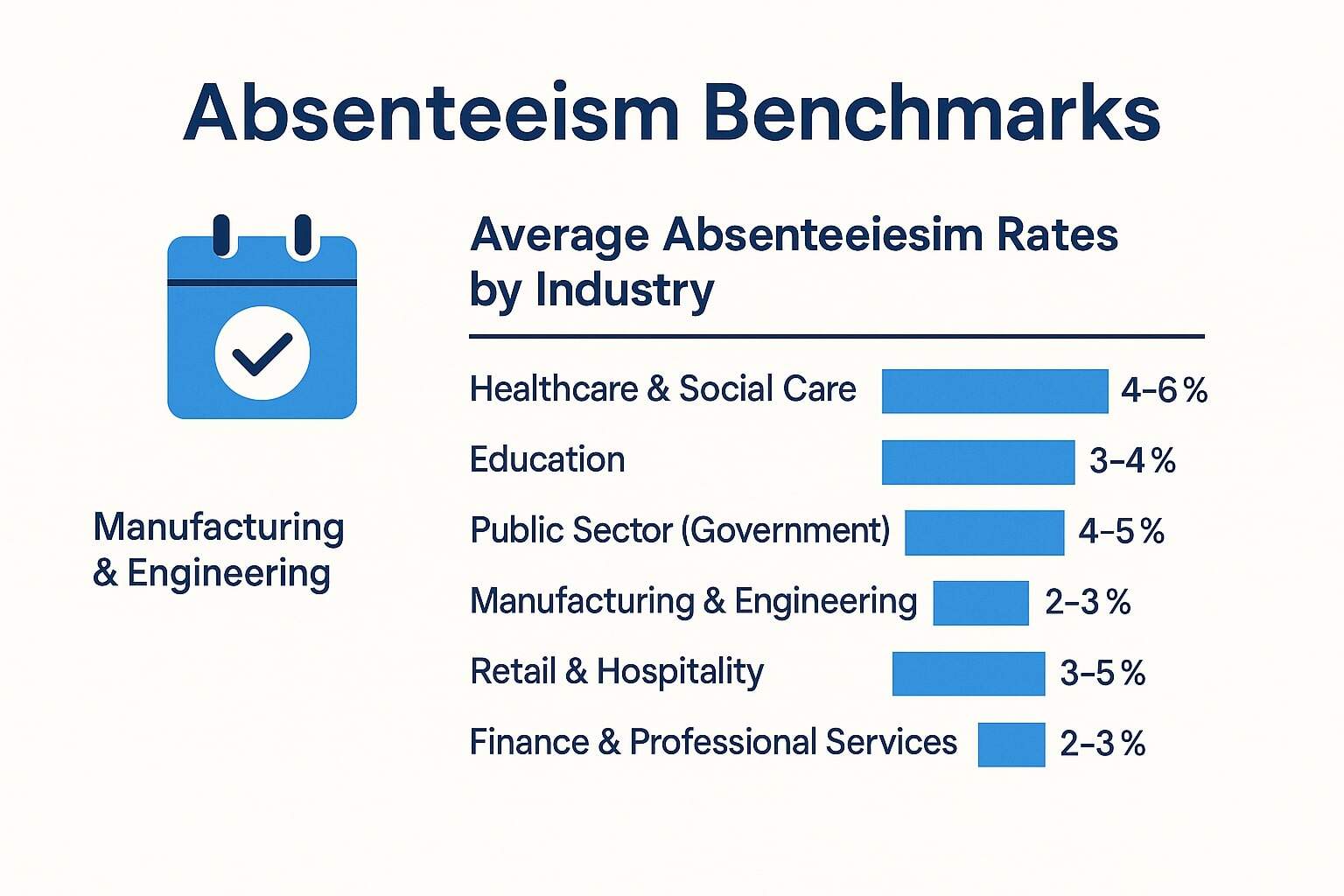Can work contact an employee who’s off sick from work with stress in the UK?

Stress is one of the leading causes of sickness absence in the UK, often linked to a mental health condition. In fact, stress, anxiety, and depression were the cause of 51% of work-related illness in 2020. However, while most companies know it’s best to give someone space when they’re off with stress, businesses occasionally find themselves in a spot that the absent employee is best equipped to get them out of. This is especially the case for smaller businesses where an employee is solely responsible for an area of the business. The question is – are you actually allowed to call employees who are absent for reason related to mental health?
Besides, if you’re calling for something small, they won’t mind – will they?
This post looks into the factors surrounding contacting an employee that’s off with stress.
Can you contact someone who’s off sick from work because of stress? Contacting employees whilst they are off sick.
The reality is that there aren’t any specific rules that prevent you contacting an employee when they’re off sick – whether it’s from stress or for any other reason. This makes it a matter of whether you should rather than if you can, especially when contacting employees whilst they are off sick. However, you need to be more careful with employees off sick from stress.
On one hand, you might just want to contact them to see how they’re feeling. There’s nothing wrong with that and, chances are, the employee will most likely appreciate the concern. If you don’t contact them, meanwhile, there’s a risk they may feel forgotten about, worsening their frame of mind. Maintaining communication can also help in monitoring the employee’s wellbeing and providing necessary support.
Similarly, there are occasions when you feel you need to contact them about matters related to their role, and if relevant, their team or department. Again, if you don’t contact them, they could feel out of the loop, adding to their stress or anxiety when they eventually return to work.
If you’re unsure whether contacting them is the right thing to do, you could drop them a text asking how they are. The beauty of a text is that they can respond to in their own time and prevents them feeling they’re on the spot. If you’d prefer to call but aren’t completely comfortable with the idea, be honest about your apprehension so they know you’re concerned about potentially bothering them.
That being said, beyond contacting a member of staff to check in or keeping them in the loop, there are a several reasons not to contact them for anything else.
It could make the problem worse
If they’re off from stress or other mental health issues, contacting them for work-related matters could make the problem worse. Firstly, as they’re at home, they’re not going to be in ‘work mode’ and are unlikely to be at their best. In fact, chances are, they won’t be able to help you – or not straight away at least. This could make them feel bad about their inability to help and stress them out even more.
They could feel pressured to return to work, affecting the employee’s wellbeing
Similarly, if they’re contacted for work-related matters, some employees might feel pressured to return to work before they’re ready. Even if no one from the company says it explicitly, they may feel the business needs them and they’re letting people down. At that point, the stress of being off from work exceeds the stress of being at work – compelling them to return prematurely.
Detrimental to Company Culture and Mental Health
Creating an environment where contacting employees at any time – when they’re off sick, their days off, when away on holiday – isn’t good for company culture.
Contacting an employee that’s off sick with stress communicates that work is more important than health. This messages aren’t just transmitted to the sick employee but to the rest of your staff as well.
They might conclude, whether accurate or not, that your company doesn’t look favourably upon staff who time off, which could discourage them from taking their full annual leave allowance. However, this is bound to lead to more stress-related absences as staff don’t take sufficient time away from work and succumb to burnout.
Alternatively, it can promote an ‘always on’ culture where employees never feel like they truly relax.
Best Practices for Managing Employee Absences
Managing employee absences effectively is crucial for maintaining a positive and productive work environment. Here are some best practices for employers to follow:
-
Establish a clear sickness absence policy: Develop a comprehensive policy that outlines the procedures for reporting and managing sick leave. This should include the role of the line manager, the use of fit notes, and the process for requesting medical evidence. A clear policy helps set expectations and provides a framework for both employees and managers.
-
Communicate with employees: Regularly contact employees on sick leave to check on their wellbeing, provide support, and discuss their return to work. However, be mindful of the frequency and method of contact to avoid harassment. A simple text or email can go a long way in showing you care without being intrusive.
-
Provide reasonable adjustments: For employees with mental health conditions or other disabilities, consider making reasonable adjustments to their work environment or duties. This can facilitate their return to work and help them manage their condition more effectively.
-
Offer occupational health assessments: Provide access to occupational health assessments to help employees manage work-related stress and ill health. These assessments can offer valuable insights into the employee’s condition and recommend necessary adjustments.
-
Monitor and manage mental health: Be aware of the signs of mental health problems and provide support and resources to employees who may be struggling. This proactive approach can help prevent issues from escalating and promote a healthier work environment.
-
Keep records: Maintain accurate and detailed records of employee absences, including the reasons for absence, the duration of absence, and any communication with the employee. This helps in tracking patterns and managing absences more effectively.
-
Review and update policies: Regularly review and update your sickness absence policy to ensure it remains effective and compliant with relevant legislation. This ensures that your policies are up-to-date and reflect any changes in the law or best practices.
Frequently Asked Questions
Q: Can employers contact employees on sick leave?A: Yes, employers can contact employees on sick leave to check on their wellbeing and provide support. However, the frequency and method of contact should be reasonable and respectful to avoid causing additional stress.
Q: How much contact is too much contact?A: The amount of contact will depend on the individual circumstances, but as a general rule, employers should avoid excessive or intrusive contact that may be perceived as harassment. A balance should be struck to ensure the employee feels supported but not overwhelmed.
Q: Can employees be required to attend a meeting while off sick?A: Employees should not be required to attend a meeting while off sick unless it is absolutely necessary. Meetings should be deferred until the employee is well enough to attend or make written submissions if possible.
Q: What constitutes employer-harassment while on sick leave?A: Any contact with an employee on sick leave that is unreasonable, excessive, or intrusive may be considered harassment. Employers should be mindful of the employee’s condition and avoid any actions that could exacerbate their stress or ill health.
Q: Can employers request medical updates from employees on sick leave?A: Yes, employers can request medical updates from employees on sick leave, but employees are not obligated to share private details. The request should be reasonable and aimed at understanding the employee’s ability to return to work.
Q: What is the role of the line manager in managing employee absences?A: The line manager plays a crucial role in managing employee absences, including communicating with employees on sick leave, providing support, and facilitating their return to work. They should ensure that the employee feels valued and supported throughout their absence.
Q: Can employees be disciplined for taking sick leave?A: No, employees should not be disciplined for taking sick leave, unless there is evidence of abuse or misuse of the sickness absence policy. Legitimate absences should be respected and managed according to the company’s policy.
Q: What is the purpose of an occupational health assessment?A: The purpose of an occupational health assessment is to provide an independent medical assessment of an employee’s fitness for work and to identify any necessary adjustments to their work environment or duties. This helps in creating a supportive work environment for the employee.
Q: Can employers make reasonable adjustments for employees with mental health conditions?A: Yes, employers have a duty to make reasonable adjustments for employees with mental health conditions or other disabilities to facilitate their return to work. These adjustments can include changes to work hours, duties, or the work environment.
Q: What is the difference between statutory sick pay and contractual sick pay?A: Statutory sick pay is the minimum amount of sick pay that employers are required to pay employees, while contractual sick pay is the amount of sick pay agreed upon in the employee’s contract of employment. Contractual sick pay often provides more generous terms than statutory sick pay.
Q: Can employees carry over unused holiday to the next holiday year while on sick leave?A: Yes, employees can carry over unused holiday to the next holiday year while on sick leave, up to a maximum of 4 weeks. This ensures that employees do not lose their entitlement to annual leave due to illness.
Q: Can employees be dismissed for capability reasons while on sick leave?A: Any dismissal for capability reasons while on sick leave must be carefully considered and the decision should only be made following a fair procedure and be justified in order to avoid liability. Employers should seek to support the employee’s return to work before considering dismissal.



